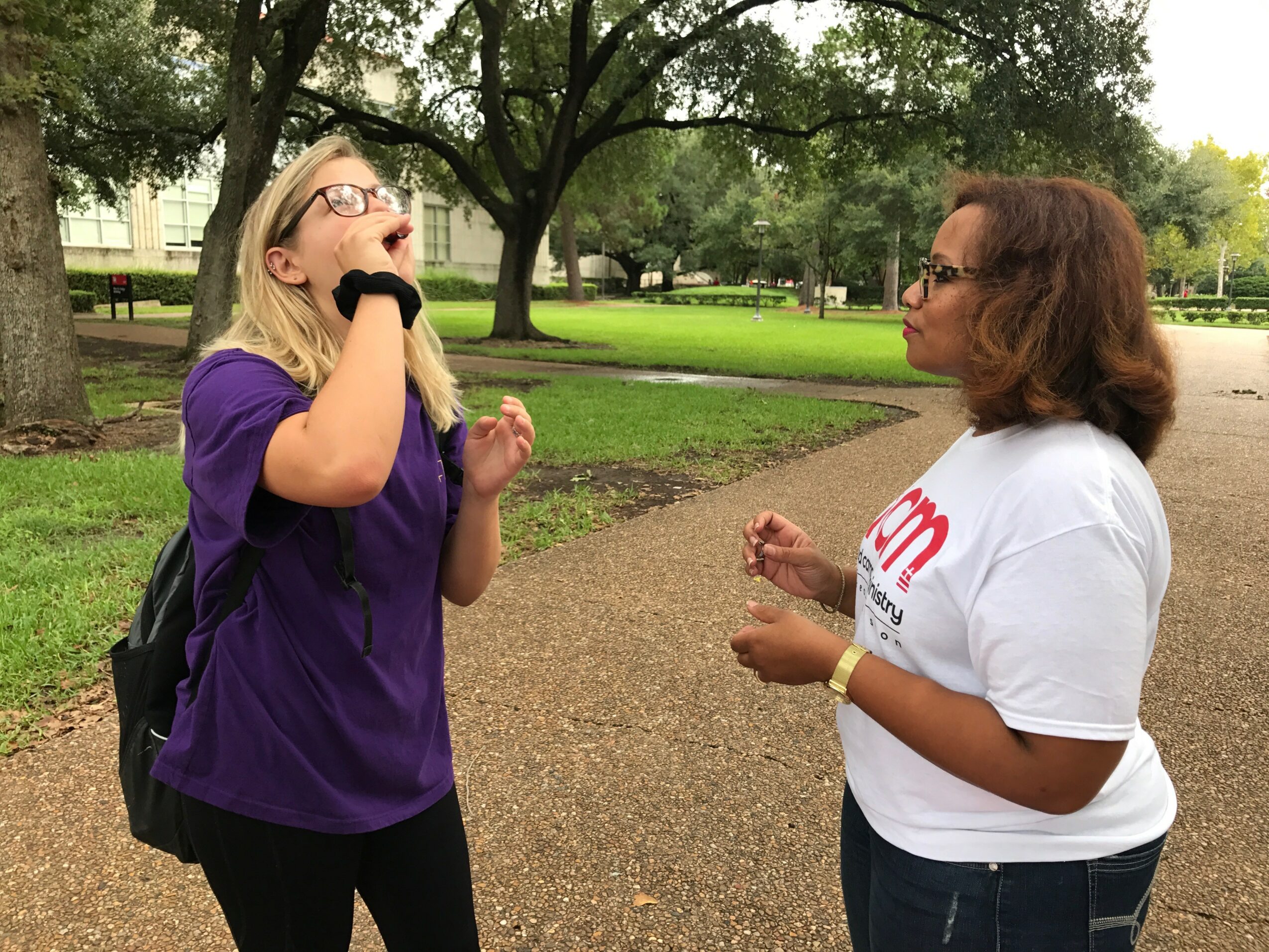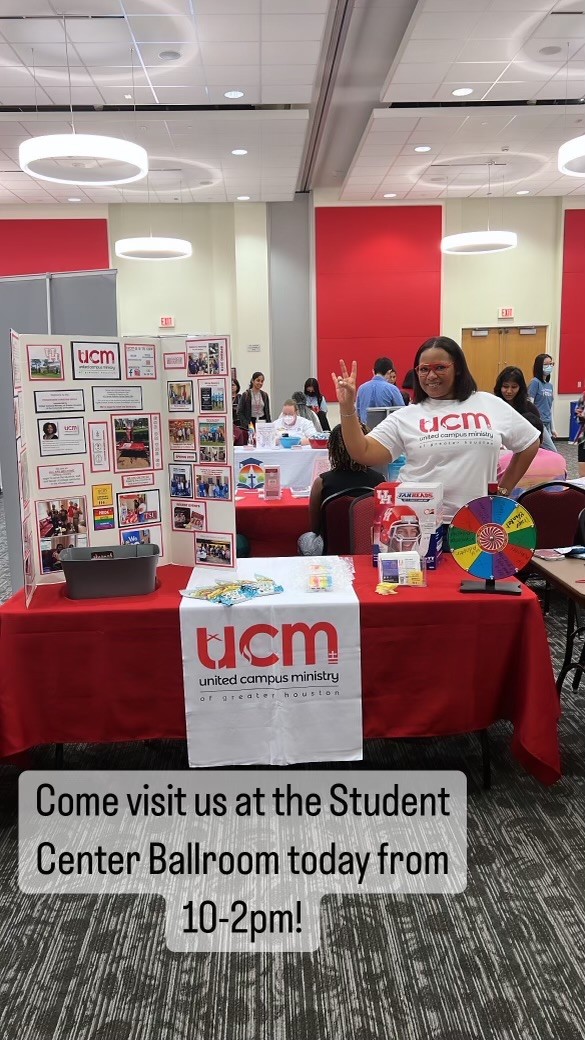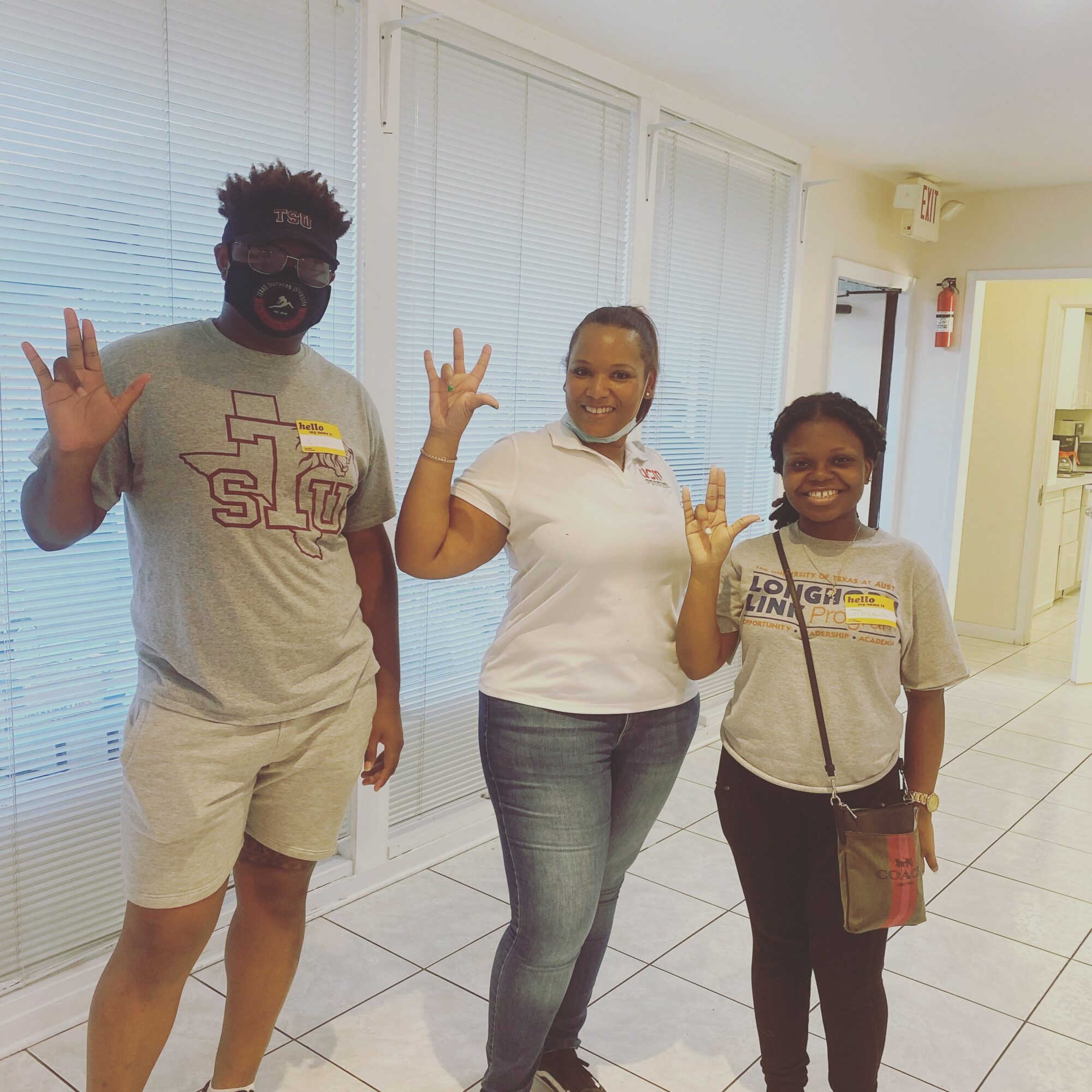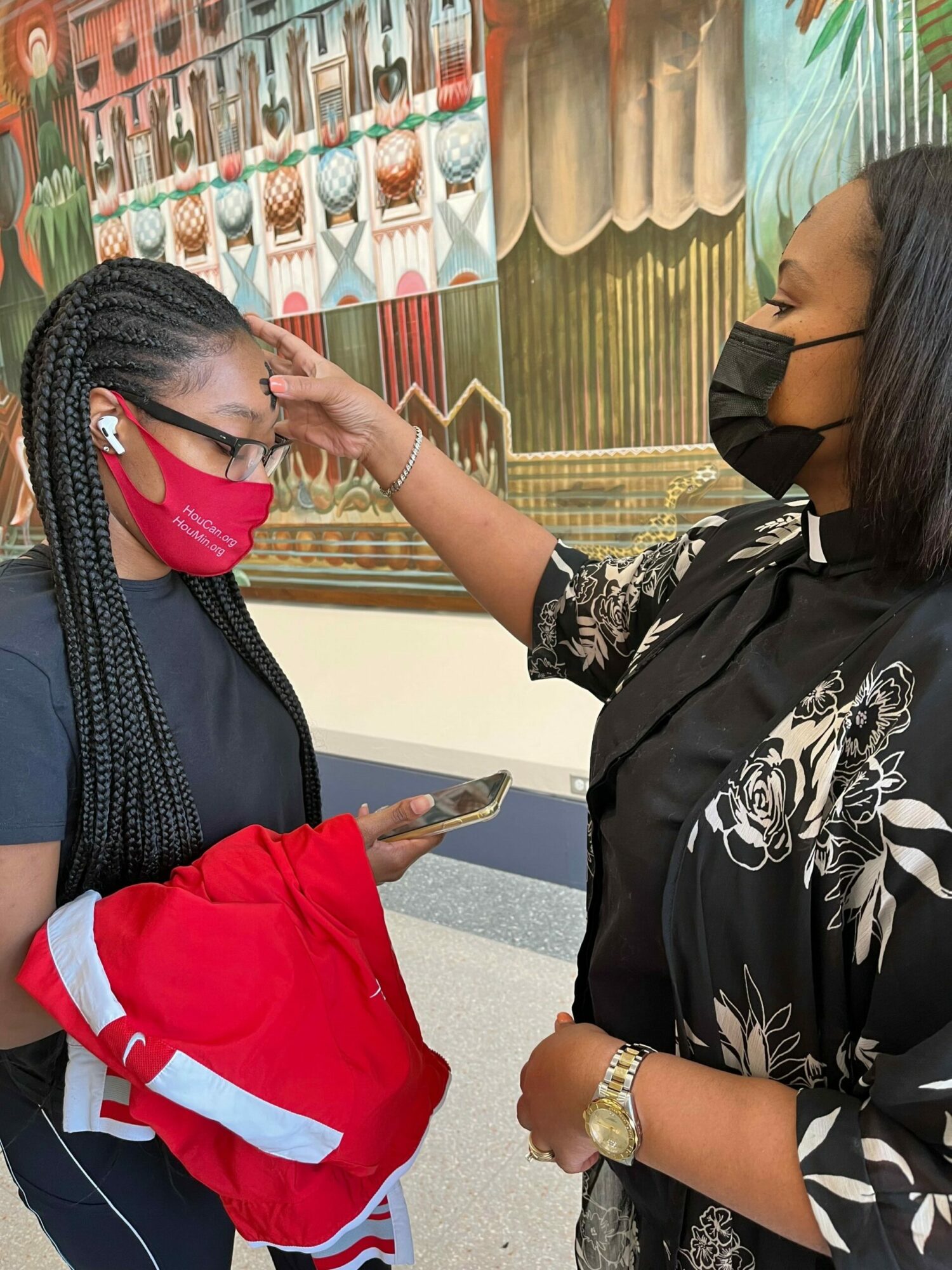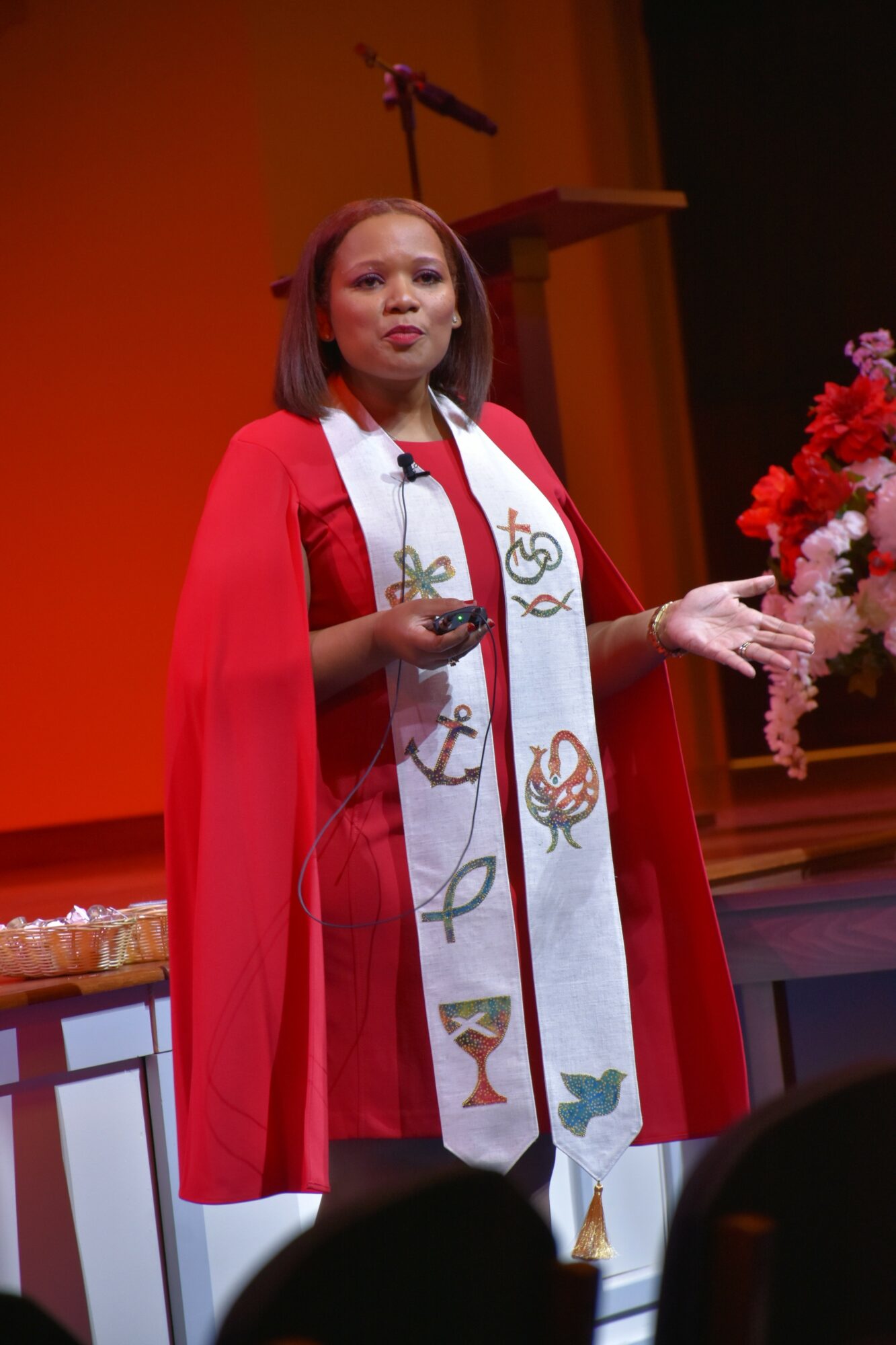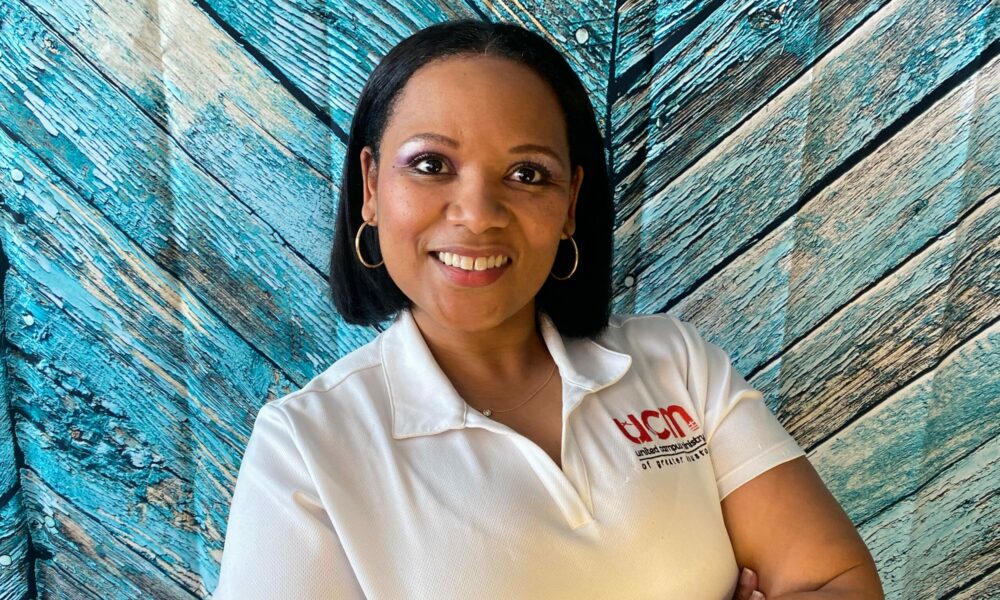

Today we’d like to introduce you to Tamika Nelson.
Hi Tamika, please kick things off for us with an introduction to yourself and your story.
Sure, well, I’m an ordained minister in the Christian Church, Disciples of Christ denomination. I am the Executive Director of United Campus Ministry of Greater Houston, based out of the University of Houston. It’s an ecumenical faith-based non-profit that provides spiritual care to college students, faculty, and staff. Now I have a funny story about being a minister, and it goes a little like this …Let’s begin with the question I asked my now husband when we first started dating in 1999 some 24 years ago. I asked him he if planned on being a preacher/pastor or anything of that nature – because that was an off-the-table option for me. My Dad pastored most of my life until high school. So, while I was a faithful Christian, I wanted no part of that side of the faith. Little did I know that it was a predestined path for me.
I have always been active in service when it came to my faith. As a college student, I would go home and teach Sunday School to high schoolers on break. Faith was natural, easy, and essential. It is a part of me as a practice, but I never considered it a vocation. Growing up, I had the privilege of experiencing different expressions of faith through familial relationships. Exposure left an impression on how I would engage in not just my faith but the faith of others. I began ministry as a vocation when I left corporate and began working at my church’s nonprofit – developing and transforming children and youth intervention programming using my sociology degree. In that role, I recognized it would be challenging to separate faith from transforming families and youth. We all have a relationship with faith, whether we own it or not. If we denounce the existence of it or its practices, we’re still in a relationship with it because we’ve acknowledged its presence for others. As I began to integrate why faith propelled the nonprofit to tend to the needs of these children and youth in the community – it was clear that I had a gift for forging the sacred and the secular into transforming missions. It was that pivotal shift that ignited a now nineteen-year ministry career.
Alright, so let’s dig a little deeper into the story – has it been an easy path overall, and if not, what were the challenges you’ve had to overcome?
From the outside looking in, yes. No path is without crooks and kinks in the road. As a person described as highly adaptable from their enneagram results, it has been challenging to identify the bumps in the road- because you’re trying to be resilient. Specializing in transformation and revitalization missions, there is little time to worry about struggles because that’s the nature of my work. I intentionally go into spaces that require transformation – so struggles are part of the territory. Yet, if I had to name some universal truths about women in a male-dominated field – yes, there have been some struggles. Some of the challenges are recognizing that even though you’re working in a space devoted to a radical movement of unconditional love, you’re still human. So, there is the pay equity and work equity issue for female and male clergy. Ageism from female clergy and then, of course, racism is still prevalent in many spaces and places of faith. There are internal struggles in balancing parenting, marriage, aging parents, and home life balance. When you’re doing people’s work, a schedule can be incredibly unpredictable- so I have made some good healthy boundaries about prioritizing family and what’s important. On a macro level, the most prevalent challenge I am facing today is trying to undo the damage that White Christian Nationalism has caused in society and reintroducing Christianity to a younger generation on college campuses – who’s seen a distorted image of the faith due to fringe political movements. I am finding that my work is really helping a generation that’s been unchurched learn about this radical movement of the wayt that is built around love and inclusion. It’s a privilege, but challenging at the same time. Yet I believe the biggest struggle is living with your unique identity. There is only one you, and once you recognize that and the gifts associated, you begin to blossom in unimaginable ways. So right now, “I really like ME,” I think finding and embracing your true self is a perpetual bump in the road.
As you know, we’re big fans of you and your work. For our readers who might not be as familiar, what can you tell them about what you do?
I am often asked what do you do? And the anser can be super loaded, in the morning I may be strategxing on how to mange a million dollars in assets and then serve a nacho bar for bible study with students. It’s a crazy gig! But as an ordained minister, I am charged with proclaiming the gospel of Jesus Christ. Now that can look different based on your area of concentration. Over the past nineteen years in ministry, I have had the privilege to proclaim that gospel in various ways. I did Executive Administrative work for a prominent African American church helping to train staff and ministry leaders, keeping the pulse of the congregation at the forefront of the Senior Pastor. I was excited and enthused to serve as a family minister at a progressive church in North Houston. I enjoyed this role because it helped me to encourage parents to engage with their children’s faith formation. Often children are sent to Sunday School to learn, but the most critical faith formation leader is not their Sunday School teacher, Pastor, or confirmation instructor – it’s the parent. My current role as the Executive Director of United Campus Ministry of Greater Houston allows me to be super creative, spiritual, and administrative simultaneously. I lead an organization that provides spiritual care for college students at the University of Houston and other campuses yearly. I get to provide spiritual support to students as they navigate the most challenging and transformative time of their young lives. We affirm that science and social justice are real and that our faith can speak and provide action to them. This role teaches me that spiritual care looks different to everyone and that proclaiming the gospel by eradicating period poverty and food insecurity on campus is as powerful and necessary as dissecting scripture during bible study each week. Being the Executive Director of a Non-Profit, particularly one that intersects faith and higher ed, can pull you in many different directions. I could begin my week delivering a sermon to a 200-member congregation and conduct a bible study with eight students, re-stock our food pantry in the office, write proposals for thousands of dollars, and end the week in tennis shoes, updating the paint in the office walls. It is a role that keeps you humble and grateful.
Being a minister requires you to have many tools in your toolbox and know how to use them in a way that is helpful and not harmful to people. The training needed for this depth of ministry work is a graduate degree from an accredited seminary called a Master of Divinity. It’s a challenging program that should deconstruct your faith. My greatest joy is helping organizations connect their mission and mission field. I have a passion project called gr8tk, where I do selective consulting for small ministries trying to forge their way into actualizing their mission. I am currently working with a Lutheran ministry (ELCA). I find helping organizations find their groove invigorating and inspiring.
What matters most to you? Why?
Helping people become healthy and whole individuals matters to me the most. When we are healthy and whole, then our entire society is healed. As I mentioned before, my task is to proclaim the gospel in various ways, and for me, that is hinged on Jesus coming to liberate the oppressed and setting the captives free. I always want to be part of a ministry, mission, and organization committed to liberating individuals from what keeps them from an abundant life. In the Christian tradition, there is a biblical term called the fruits of the spirit. It is found in the New Testament Epistle of Galatians- which states we should possess nine traits. They are love, joy, peace, goodness, kindness, faithfulness, and self-control. If I can help facilitate a space where people are led to live by these traits, then I’m fulfilled.
Contact Info:
- Website: www.ucmhouston.com
- Instagram: @ucmhouston
